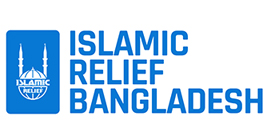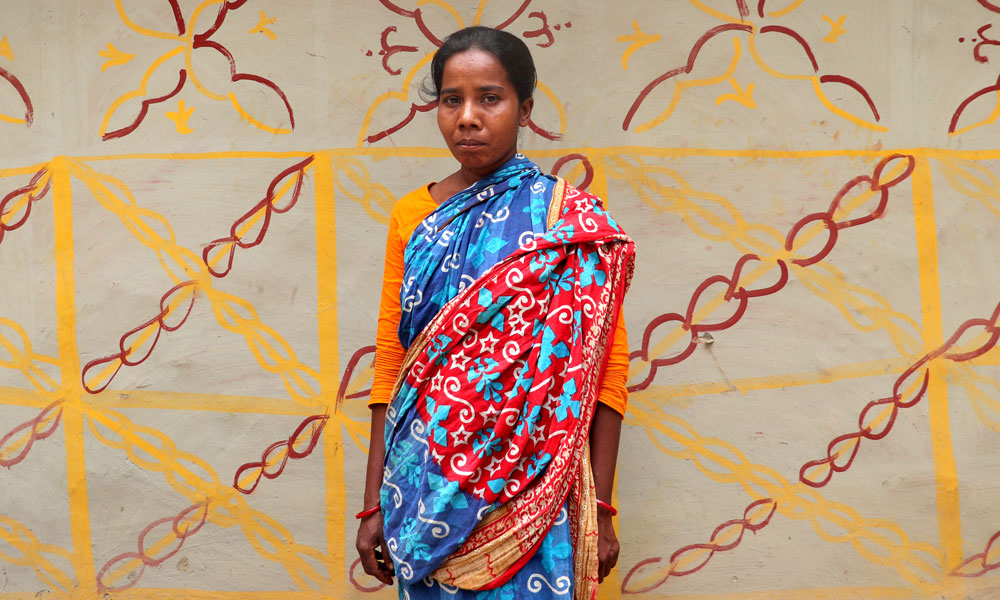According to the United Nations Population Fund, in Bangladesh, nearly 51% of girls are married for the first time before their eighteenth birthday and almost 1 in 5 girls get married before the age of 15.
“For some families, marriage is sometimes seen as the only way for them to survive,” says Sharmin Ruba from Islamic Relief Bangladesh, explaining that poverty is a key factor behind girls getting married so early. “As some parents see girls as a financial burden, and the cost of a girl’s marriage usually rises with age, marrying off their daughters early is a way to reduce the cost associated with the marriage, and means they have one less mouth to feed.”
Forced and underage marriage hurts young girls the most, as they are more likely to experience domestic violence, sexual abuse, and depression, as well as early pregnancy, which can result in a multitude of health problems for them and their children.
Girls who resist forced marriages are usually under enormous pressure from their families and may be threatened with violence. In many countries, the lack of access to correct knowledge and information, along with stigma and cultural barriers, prevent girls from learning about their rights.
Early marriage under duress
Olivia*, 33, is a member of the Indigenous Santal community in Bangladesh and a Christian. She was only 13 years old when her father introduced her to a considerably older man whom, she was told one night, she was to marry. Olivia says, “I didn’t understand what marriage meant at all, so I didn’t argue with it.” Like many children in similar situations, Olivia, who had already given up her schooling in anticipation of marriage, had no say in the matter.
The man she married was already divorced, unemployed and had a serious alcohol abuse problem. After the wedding, Olivia’s poverty-stricken parents sent her to live with her new husband, and her situation immediately deteriorated.
Olivia was mistreated and physically abused. She received almost nothing to eat and was not allowed to leave the house. “There was not a single day when I was not beaten by my husband. He used to beat me mercilessly without any reason. I had nowhere to go. I felt so helpless.”
Choosing between life or death
Olivia became pregnant early in her marriage, which only made her situation worse. Her husband continued to beat her throughout every pregnancy, and the children would also bear the brunt of his anger.
“Sometimes I thought about committing suicide, and the only thing that would stop me was the thought of who would take care of my children in my absence. Thinking of the harsh reality they would have to live in, I refrained from taking my own life.”
Knowing she couldn’t go on living with this abuse, Olivia decided to involve her husband’s family and her village head, but they forced her to remain in the marriage. A distraught Olivia also needed to work to provide for her children, since her husband didn’t have a steady job and spent the little money that he earned on alcohol.
Olivia got a seasonal job working in the fields, but it didn’t pay much. That is when she heard about Islamic Relief’s project for ethnic minorities in Nawabganj in 2020. Funded by Forum Civ, the initiative supported 600 women to enhance their rights, dignity, and income generation abilities. Olivia joined the project, which held regular group meetings.
Olivia decided to participate in the self-help group teaching women about their economic and legal rights. She gained invaluable knowledge about a range of issues, such as violence against women and girls, health and hygiene, early marriage, and dowry. As part of her training, she also learned how to find employment and save money.
A new lease of life
Now more confident and aware of her rights, Olivia found the courage to reach out for help to stop the violence her husband was inflicting on her and the children. After calling the emergency number she had been taught by Islamic Relief, Olivia received police assistance to file a complaint against her husband, who had to sign papers stating that he would not harm Olivia and her children.
This led to him apologising, and leaving to find a job in the capital, where he now works as a rikshaw puller. He sends money home every week, and Olivia has started rearing livestock. “I am able to save some money now after paying off all my expenses. I dream of one day having my own poultry farm and give my children the chance to get an education and learn about their rights.”
Olivia says that she is extremely grateful to Islamic Relief, “I had no idea of my rights. I had to suffer a lot and remained silent during brutal oppression by my husband. I am grateful to Islamic Relief for educating me about gender-based violence. It is now possible for me to make financial and household decisions on my own. As I continue to strive to be self-reliant, I want to make sure other ethnic women receive the same education and become self-sufficient as well.”
With the help of Islamic Relief, Olivia and her children are now doing better and are getting the care and support they need.
Islamic Relief provide information to parents, teachers, village heads and local organisations about the harm caused by child marriage and highlight the importance of girls’ education.
*Name has been changed to protect her identity.

